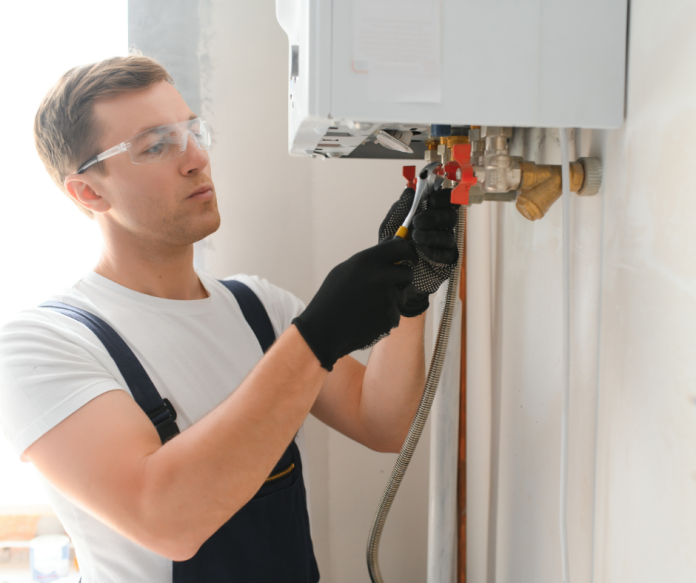In the heart of many UK homes lies a crucial component that ensures the comfort and warmth of its occupants – the boiler. This essential device is responsible for heating water that circulates through radiators and taps, providing both warmth and hot water. However, for a boiler to function effectively, certain conditions must be met, with one of the most critical being proper pressure maintenance.
The Role of Pressure in Boilers
Boiler pressure is a term that often comes up in discussions about heating systems, especially when troubleshooting common boiler problems. But what exactly does it mean, and why is it so important? In simple terms, pressure refers to the force that moves water through the system. For a boiler to heat water and send it through pipes and radiators throughout a home, a specific level of pressure is required. Without adequate pressure, the system’s efficiency can significantly decrease, leading to inadequate heating and, in some cases, no heating at all.
The optimal pressure for most domestic boilers is typically around 1 to 1.5 bars. It is crucial to maintain this pressure level to ensure the system operates smoothly. However, fluctuations can occur, leading to either too low or too high pressure. Low pressure, in particular, can hinder the boiler’s ability to operate, as it may struggle to circulate water effectively.
How to Maintain the Right Pressure
Maintaining the correct pressure in your boiler is vital for its efficient operation. One common issue homeowners face is a drop in pressure, which can occur for various reasons, including leaks in the system or after bleeding radiators. Regularly checking the boiler’s pressure gauge and knowing how to re-pressurise your system if needed are essential skills for any homeowner.
Additionally, understanding how to get a boiler on finance can be invaluable, especially when facing unexpected repairs or the need for a replacement. This option can provide a manageable way to ensure your heating system remains in top condition without upfront costs.
When the pressure drops below the recommended level, it’s usually possible to increase it by adding water to the system through the filling loop. However, it’s crucial to consult your boiler’s manual or a professional to avoid over-pressurising the system, which can be just as problematic as low pressure.
Preventing Pressure Problems
Regular maintenance is key to preventing pressure-related issues in your boiler. An annual service by a certified engineer can help identify potential problems before they escalate, ensuring your boiler operates efficiently and safely. This check-up typically includes examining the boiler and its components, testing functionality, and making any necessary adjustments to pressure levels.
Moreover, being vigilant about signs of leaks or changes in heating performance can help you address pressure issues before they lead to more significant problems. If you notice a continuous drop in pressure even after re-pressurising, it may indicate a leak within the system, requiring professional attention.
While a boiler can technically operate at various pressure levels, optimal performance is closely tied to maintaining the correct pressure. Without sufficient pressure, a boiler struggles to circulate hot water through the home, leading to inefficiency and discomfort. By understanding the importance of boiler pressure, homeowners can take proactive steps to ensure their system remains reliable, efficient, and ready to provide warmth on demand. Ensuring your boiler is kept at the correct pressure is not just about maintaining a comfortable home; it’s about optimising energy use and safeguarding the longevity of your heating system.







